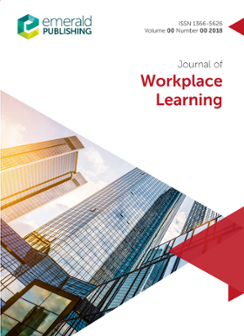Table of contents
Work‐based learning in practice
Joseph A. RaelinThis paper depicts a prototypical learning program based on the author’s model of work‐based learning. The model is premised on the simple idea that learning can be acquired in…
Action learning and the leadership development challenge
John Peters, Peter A.C. SmithArgues that action learning is the most appropriate methodology for developing leadership abilities, due to its being centred on questioning to address uncertainty, rather than on…
Developing managerial skills: a framework to define the faculty role in linking field‐based learning to classroom learning
Jeffrey A. MelloSince Porter and McKibbin (1988) published their landmark study of the state of management education, business schools have been altering their curricula in response to the…
The essential principles of action learning
Craig JohnsonThis paper is offered as an introduction to action learning. The nature of the organisational problem(s) for investigation under an action learning programme is defined and the…
Systemic decision application: linking learning outcome assessment to organizational learning
Joy Benson, Sally DresdowUniversities engage people in a process of learning. During the past decade, there has been increased interest in assessing the quality of students’ learning. This paper presents…
New developments in the use of simulations and games for learning
Joseph WolfeBusiness games for instruction have continued to grow in their use. While the basic structure of these games has largely remained the same, the technical support provided to both…
Total enterprise simulation performance and participant learning
John B. Washbush, Jerry GosenTotal enterprise simulations are often used and included as graded elements by instructors in business degree capstone “policy courses” under the assumption that their use…
New developments in the use of cases for learning
Joseph WolfeThe case method’s use has grown steadily since its inception in the 1920s. The number of cases available to instructors, and the number of case writers and the outlets for their…
Using electronic networks in management and executive learning
Paul MiesingThis paper describes how a required MBA course used Lotus Notes and the Internet to provide an enriched learning experience. The class simulated a consulting firm that sent teams…
Multiculturalism in collegiate management education
Edward HenningerNotes that one common response by management textbook writers and publishers to the need for multiculturalism in collegiate management education is to add chapters to standard…
Strengthening management education and development with non‐prescriptive guidelines for the management/ leadership aspect of decisions
Erwin Rausch, Ernest StarkExplores the authors’ suggestion for creating a bridge between management/leadership theory and practical application. The suggestion rests on six foundations: non‐prescriptive…
Teaching leadership as a non‐positional phenomenon
John B. WashbushProposes that leadership is effective influence, is not authority‐position dependent, can be taught and learned in non‐positional settings and is vital to developing managerial…
Enhancing the effectiveness of management education with a tone of music and the mystique of magic
Walter J. WheatleyThe basic differences between good management education and excellent management education is the dynamism of the speaker and exciting materials. This paper is designed to…
Spirituality in management education
Robert W. BoozerThis paper suggests themes and specific questions that may be used as a foundation for discussion about the role of spirituality in management education. The discussion should…

ISSN:
1366-5626Renamed from:
Employee Counselling TodayOnline date, start – end:
1997Copyright Holder:
Emerald Publishing LimitedOpen Access:
hybridEditors:
- Assistant Sara Cervai
- Prof Tauno Kekäle